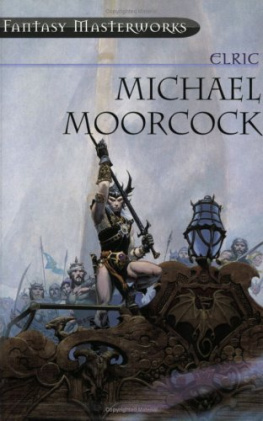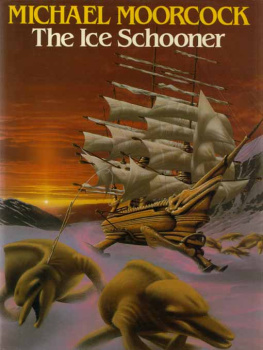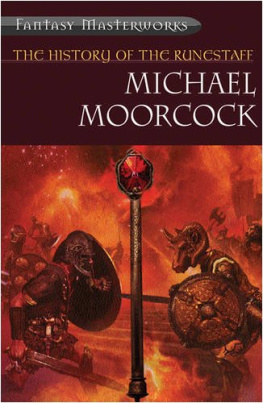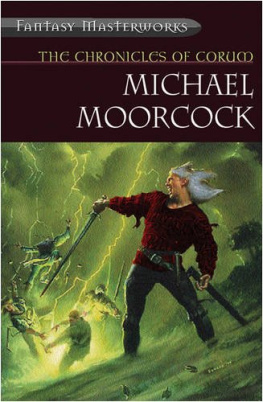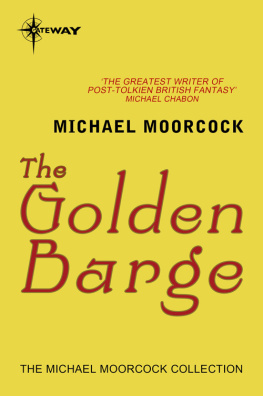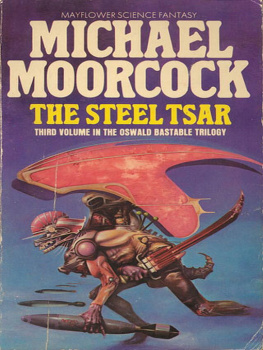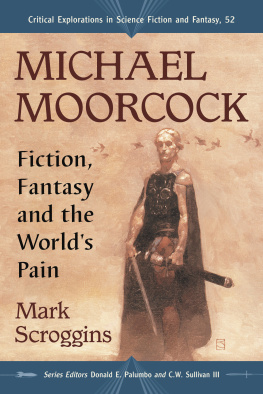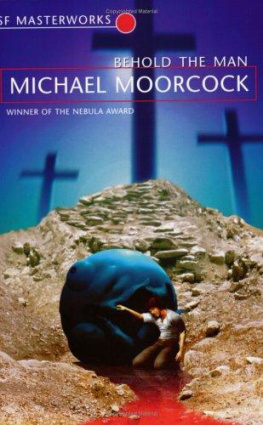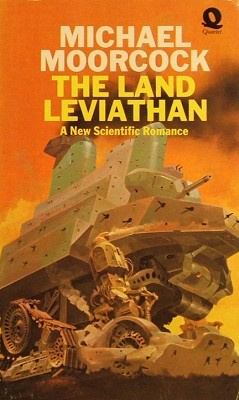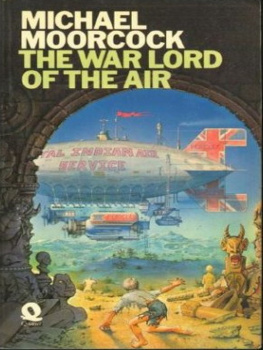Michael Moorcock - The Skrayling Tree
Here you can read online Michael Moorcock - The Skrayling Tree full text of the book (entire story) in english for free. Download pdf and epub, get meaning, cover and reviews about this ebook. genre: Romance novel. Description of the work, (preface) as well as reviews are available. Best literature library LitArk.com created for fans of good reading and offers a wide selection of genres:
Romance novel
Science fiction
Adventure
Detective
Science
History
Home and family
Prose
Art
Politics
Computer
Non-fiction
Religion
Business
Children
Humor
Choose a favorite category and find really read worthwhile books. Enjoy immersion in the world of imagination, feel the emotions of the characters or learn something new for yourself, make an fascinating discovery.

- Book:The Skrayling Tree
- Author:
- Genre:
- Rating:3 / 5
- Favourites:Add to favourites
- Your mark:
- 60
- 1
- 2
- 3
- 4
- 5
The Skrayling Tree: summary, description and annotation
We offer to read an annotation, description, summary or preface (depends on what the author of the book "The Skrayling Tree" wrote himself). If you haven't found the necessary information about the book — write in the comments, we will try to find it.
The Skrayling Tree — read online for free the complete book (whole text) full work
Below is the text of the book, divided by pages. System saving the place of the last page read, allows you to conveniently read the book "The Skrayling Tree" online for free, without having to search again every time where you left off. Put a bookmark, and you can go to the page where you finished reading at any time.
Font size:
Interval:
Bookmark:
THE SKRAYLING TREE
THE ALBINO IN AMERICA
Michael Moorcock
For Jewell Hodges and them Gibsons with great respect
Thanks, too, as always to Linda Steele for her good taste and patience
Prologue
Nine by nine and three by three,
We shall seek the Skraeling Tree.
WHELDRAKE,'A Border Tragedy"The following statement was pinned to a later part of this manuscript. The editor thought it better placed here, since it purports to be at least a partial explanation of the motives of our mysterious dream travelers. Only the first part of this book is written in a different, rather idiosyncratic hand. The remaining parts of the story are mostly in the handwriting of Count Ulric von Bek. The note in his hand demanding that the manuscript not be published until after his death is authentic.
More than one school of magistic philosophy insists that our world is the creation of human yearning. By the power of our desires alone, we may bring into being whole universes, entire cosmologies, and supernatural pantheons. Many believe we dream ourselves into existence and then dream our own gods and demons, heroes and villains. Each dream, if powerful enough, can produce still another version of reality in the constantly growing organism that is the multiverse. They believe that just as we dream creatively, we also dream destructively. Some of us have the skills and courage to come and go in the dreams of others, even create our own dreams within the host dream. This was the accepted wisdom in Melnibone, where I was born.
In Melnibone we were trained to enter dreams in which we lived whole and very long lives, gaining the experience such realities brought. I had lived over two thousand years before I reached the age of twenty-
five. It was a form of longevity I would wish upon only a handful of enemies. We pay a price for a certain kind of wisdom which brings the power to manipulate the elements.
If you were lucky, as I was, you did not remember much of these dreams. You drove them from your mind with ruthless deliberation. But the experience of them remained in your blood, was never lost. It could be called upon in the creation of strong sorcery. Our nature dictates that we forget most of what we dream, but some of the adventures I experienced with my distant relative Count Ulric von Bek enabled me to record a certain history which intertwined with his. What you read now, I shall likely forget soon.
These dreams form a kind of apocrypha to my main myth. In one life I was unaware of my destiny, resisting it, hating it. In another I worked to fulfill that destiny, all too aware of my fate. But only in this dream am I wholly conscious of my destiny. And when I have left the dream, it will fade, becoming little more than a half-remembered whisper, a fleeting image. Only the power will stay with me, come what may.
Elric Sadric's son, last Emperor of Melnibone
Should you ask me, whence these stories?
Whence these legends and traditions,
With the odors of the forest,
With the dew and damp of meadows,
With the curling smoke of wigwams,
With the rushing of great rivers,
With their frequent repetitions
And their wild reverberations,
As of thunder in the mountains?
I should answer, I should tell you,
"From the forests and the prairies,
From the great lakes of the Northland,
From the land of the Ojibways
From the land of the Dacotahs,
From the mountains, moors, and fen-lands
Where the heron, the Shuh-shuh-gah,
Feeds among the reeds and rushes.
I repeat them as I heard them
From the lips of Nawadaha,
The musician, the sweet singer."
THE FIRST BRANCH
OONA'S STORY
Nine Black Giants guard the Skraelings' Tree,
Three to the South and to the East are Three,
Three more the Westward side win shield,
But the North to a White Serpent she will yield;
For he is the dragon who deeply sleeps
Yet wakes upon the hour to weep,
And when he weeps fierce tears of fire,
They form a fateful funeral pyre
And only a singer with lute or lyre,
Shall turn the tide of his dark desire.
CHAPTER ONE
The House on the Island
Hearing I ask from the Holy Races,
Prom Heimdall's sons, coin high ana low;
Thou wilt know, Valfather, now well I relate
Ola tales I remember of men long ago.
I remember yet the giants of yore,
Who gave me bread in me days gone by;
Nine worlds I knew, the nine in the tree
With mighty roots beneath the mold.
I am Oona, the shape-taker, Grafin von Bek, daughter of Oon the Dreamthief and Elric, Sorcerer Emperor of Melnibone. When my husband was kidnapped by Kakatanawa warriors, in pursuit of him I descended into the maelstrom and discovered an impossible America. This is that story.
With the Second World War over at last and peace of sorts returned to Europe, I closed our family cottage on the edge of the Grey Fees, and settled in Kensington, West London, with my husband Ulric, Count Bek. Although I am an expert archer and trained mistress of illusory arts, I had no wish to follow my mother's calling. For a year or two in the late 1940s I lacked a focus for my skills until I found a vocation in my husband's sphere. The unity of shared terror and grief following the Nazi defeat gave us all the strength we needed to rebuild, to rediscover our idealism and try to ensure that we would never again slide into aggressive bigotry and authoritarianism.
Knowing that every action taken in one realm of the multi-verse is echoed in the others, we devoted ourselves confidently to the UN and the implementation of the Universal Declaration of Human Rights which H. G. Wells had drafted, in direct reference to Paine and the U.S. Founding Fathers, just before the War. The U.S.A.'s own Eleanor Roosevelt had helped the momentum. Our hope was that we could spread the values of liberal humanism and popular government across a world yearning for peace. Needless to say, our task was not proving an easy one. As the Greeks and Iroquois, who fathered those ideas, discovered, there is always more immediate profit to be gained from crisis than from tranquillity.
By September 1951, Ulric and I had both been working too hard, and because I traveled so much in my job, we had chosen to educate our children at boarding school in England. Michael Hall in rural Sussex was a wonderful school, run on the Steiner Waldorf system, but I still felt a certain guilt about being absent so often. In previous months Ulric had been sleeping badly, his dreams troubled by what he sometimes called "the intervention," when Elric's soul, permanently bonded to his, experienced some appalling stress. For this reason, among others, we were enjoying a long break at the Frank Lloyd Wright-designed summer house of Nova Scotian friends currently working in Trinidad. They were employed by the West Indies Independence Commission. When they returned to Cap Breton we would then leave their airy home to visit some of Ulric's relatives in New England before taking the Queen Elizabeth back to Southampton.
We had the loveliest weather. There was already a strong hint of autumn in the coastal breezes and a distinct chill to the water we shared with the seals, who had established a small colony on one of the many wooded islands of the Sound. These islands were permanently fascinating. The comings and goings of the wildlife provided just the right relaxation after a busy year. While Ulric and I enjoyed our work, it involved a great deal of diplomacy, and sometimes our faces ached from smiling! Now we could laze, read, frown if we felt like it and stop to enjoy some of nature's most exquisite scenery.
Font size:
Interval:
Bookmark:
Similar books «The Skrayling Tree»
Look at similar books to The Skrayling Tree. We have selected literature similar in name and meaning in the hope of providing readers with more options to find new, interesting, not yet read works.
Discussion, reviews of the book The Skrayling Tree and just readers' own opinions. Leave your comments, write what you think about the work, its meaning or the main characters. Specify what exactly you liked and what you didn't like, and why you think so.

